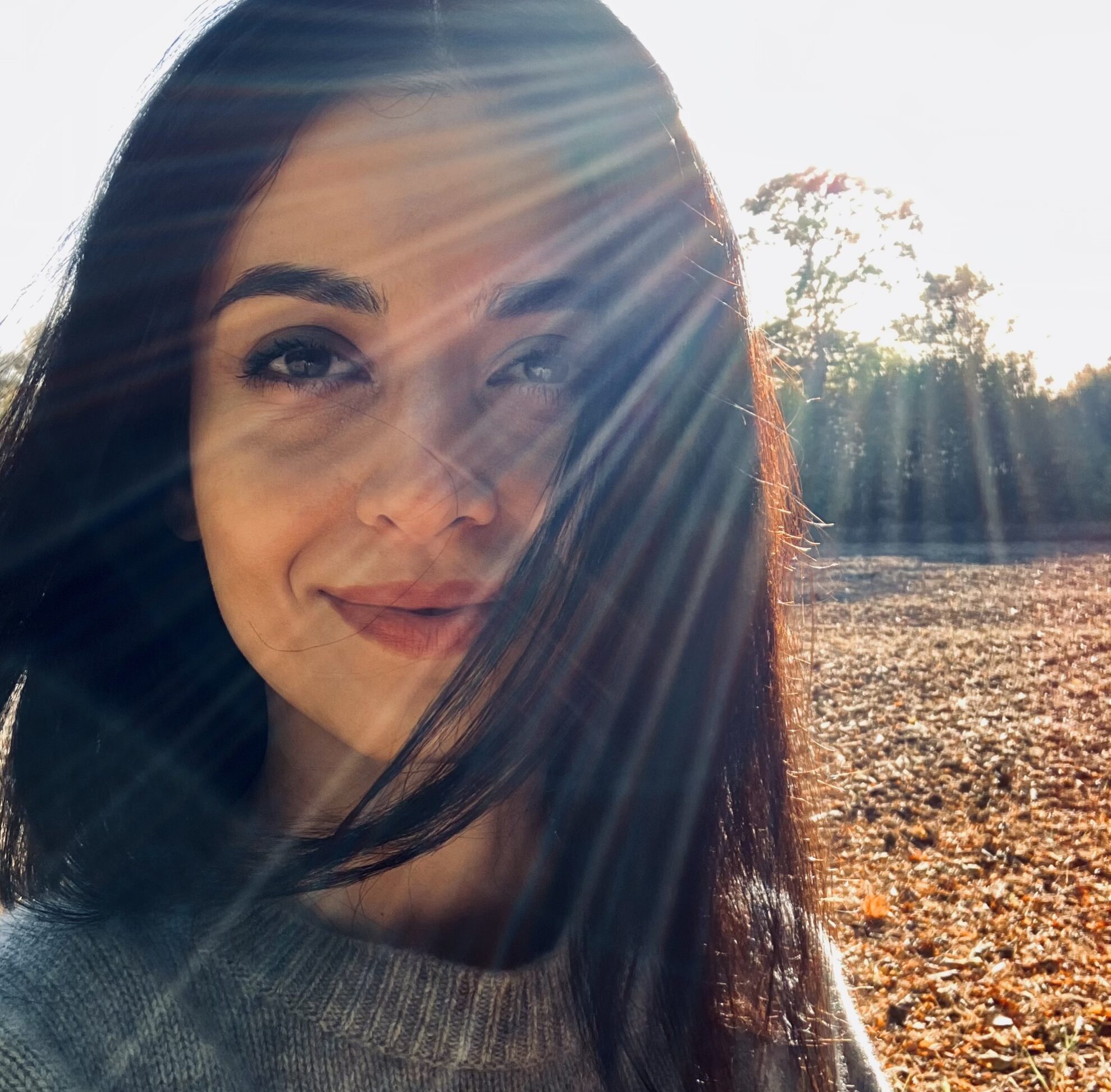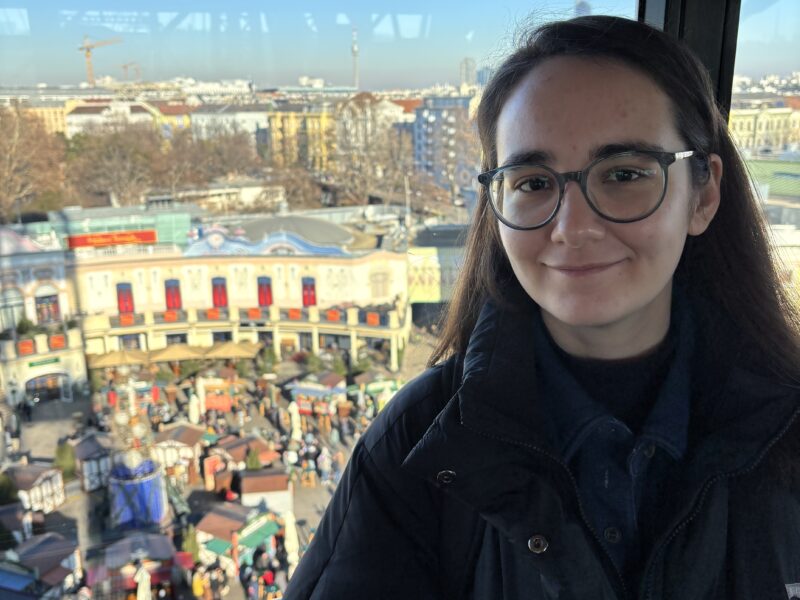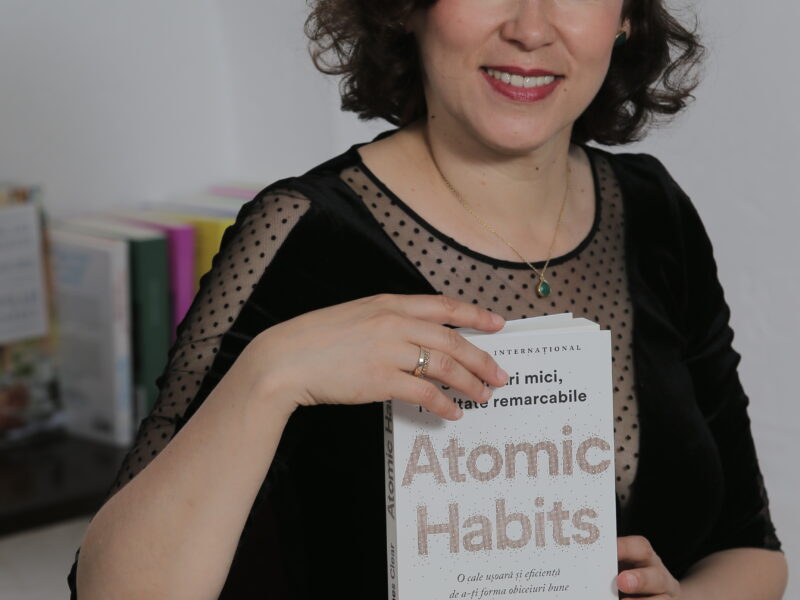Iulia–Cristiana Stan works as the Editorial Director of Corint Editorial Group. She first started working as an editor for Corint in 2018, then gradually supervised more important and representative collections, such as Classics of Literature, in order to end up in 2023 to coordinate the entirety of the editorial department, proving that passion and professionalism are key–elements of success. The same enthusiasm and deeply meticulous training provided her an entrance to the book industry in 2011, when she joined Spandugino Publishing House. For more than five years she worked as the news editor for Rock FM, and has also been a volunteer for Save the Children Romania. She graduated two masters in communication and cultural management and has a PhD in philology. When she wan’t able to read books, Iulia imagined the contents of the books surrounding her. Nowadays she is reading them and conjuring their way into existence, so it’s pretty hard for her to imagine her world without books.
You are, first of all, a reader. Which were the books who first guided you on this path?
First and foremost, all of us who work in the book industry are, in fact, just simply readers, as I always put it. I remember very vividly how I was holding the books and making up stories which I imagined belonged to that pages. I’ve always been read to and around me, but more important than anything, I pretended to read, until the letters somehow began to make sense, to connect and mean something. This was a few years ahead of school, which turned up not being so great, as I became more and more bored, while my classmates were still struggling to figure out how to read and write. Because I taught myself how to write, I ended up with a traumatizing handwriting for anyone brave enough to try to decipher it. It was later impossible for me to change it. Among the first books I tried my new superpower on were several volumes of myths and legends, which marked my inner life: Greek mythology, chivalric legends, and two books of stories from African and Asian folklore, respectively. Terrible stories - they terrified and fascinated me at the same time. The next formative stage came with my spiritual fathers, Charles Dickens and Victor Hugo. Again, it was premature to try to understand them, but that didn't stop me from passionately loving all their novels. And Huck Finn was a good friend of mine as a child, along with the characters of the other two previous authors. Herman Melville's The Wild Sea accompanied me as well. Moby Dick and Benito Cereno are still among my favorites..
You entered the publishing world in 2011, when you joined the Spandugino Publishing House team as a copy editor. How did you ended up working with them, what was that experience like and what was the book market like back then?
In 2010 I went to the Gaudeamus Book Fair and there, strolling through the stands, I told myself that I would like to work for a publishing house. So, in that December, with only three or four days until Christmas, I sent some emails of recognition to a few publishing houses, Spandugino being among them. I explained in those emails that I had no prior experience in that field, but that I will definitely learn, because I am already a very good philologist 😊. Mrs. Spandonide was the first one to answer (as far as I remember, I got the answer in the same day, which amazed and impressed me) and asked me to have a meeting. In the first days of January, I started my adventure at Spandugino, where I got the chance to work with a couple of cultural personalities, such as professors Mihai Dinu and Mihai Zamfir, which I knew very well, but not from this position, as authors, also C.D. Zeletin and academician Solomon Marcus and others, among them. I had quite a few beautiful experiences there, professional and personal, from which I learned a lot, more than I could realize at that time. We were a really small team, made up of only rookies in that field. In a way, we all learned our jobs along the way. About the book market I think I hadn’t a very realistic perspective, because we all lived in our little world. But I can tell you, for example, that Solomon Marcus sometimes invited only us, „the small cogs”, to a dinner in the area where he used to live. One time, he invited me and the other two colleagues with whom I was working on his „Open Wounds” series to some fried trout. We got there, to a place called „La Radu”, where the waiter sat up without fail, obviously accustomed with the presence of the academician. I, reluctantly, confessed that I don’t eat meat. In those years I was a vegetarian. Marcus (he insisted we called him that; When he was alive, I couldn’t do it, but now I feel like calling him like that) looked at me dumbfounded and asked rhetorically: „What do you mean you don’t eat meat, who has ever heard of such a thing?!” and curtly gave the order: „Four fried trout!”
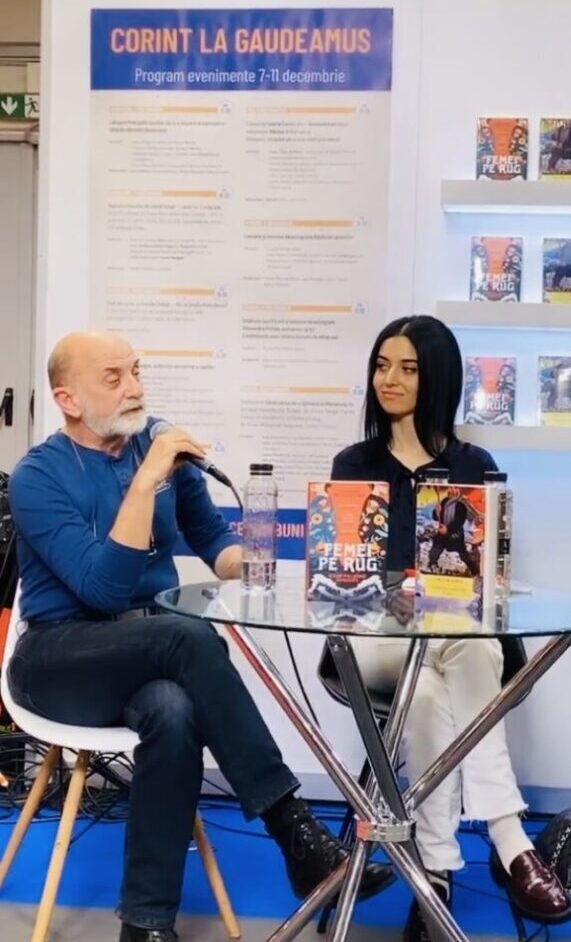
You are part of the Corint Publishing House team since 2018, when you joined them as an editor. How were the beginnings and what this first stage consisted of?
2018 was a very lonely period for me because I prepped up my PhD. Once successfully defended, I decided that I wanted two things from my near future – to give back a little good (which is why one school year I was a volunteer at Save the Children, but how much good I did and how much I received is rather a story for another day.) and to do something practical. I had reached a saturation point with my own thoughts and my own inclination for the abstract so I wanted something tangible to come out of my work, but also to work with people again, not just alone. That’s why, when I saw Corint’s ad for a copy editor position in the Junior literature department, I responded. I gave a test right there on the spot, for two hours, and not because I stretched myself: that’s how the exam was conceived, to last for that long, just like an exam back in the faculty days. The publishing house was very pleased with my results and the linguistic-stylistic solutions that I proposed and I was pleased that I took a demanding exam, because I always liked exams. 😊So, I started my work at the Junior department, which at the time was led by Cătălin Strat, an editor with over twenty years of experience and a true professional – and the author of the previous mentioned test! I had the opportunity in that period, for the first time in my life, to read children books, which I had not been attracted to when I was a child myself, but which now, surprisingly, seemed wonderful for me. But curiosity has always pushed me to become interested in different fields of interest and books, and in what my colleagues from other departments were doing at the time. So, in less than a year I „migrated” to adult literature, where I worked with Ana Antonescu, also an editor with a great experience in the field and, for a long time, the editorial director of Corint Publishing House. From these two editorial directors with whom I grew up professionally, I learned not only a lot of practical skills, but also nuances that are deeply rooted in the ethical aspect of our work and work in general: how much to invest in a matter, to know when to give up and when to not, in order to not become obsessive.
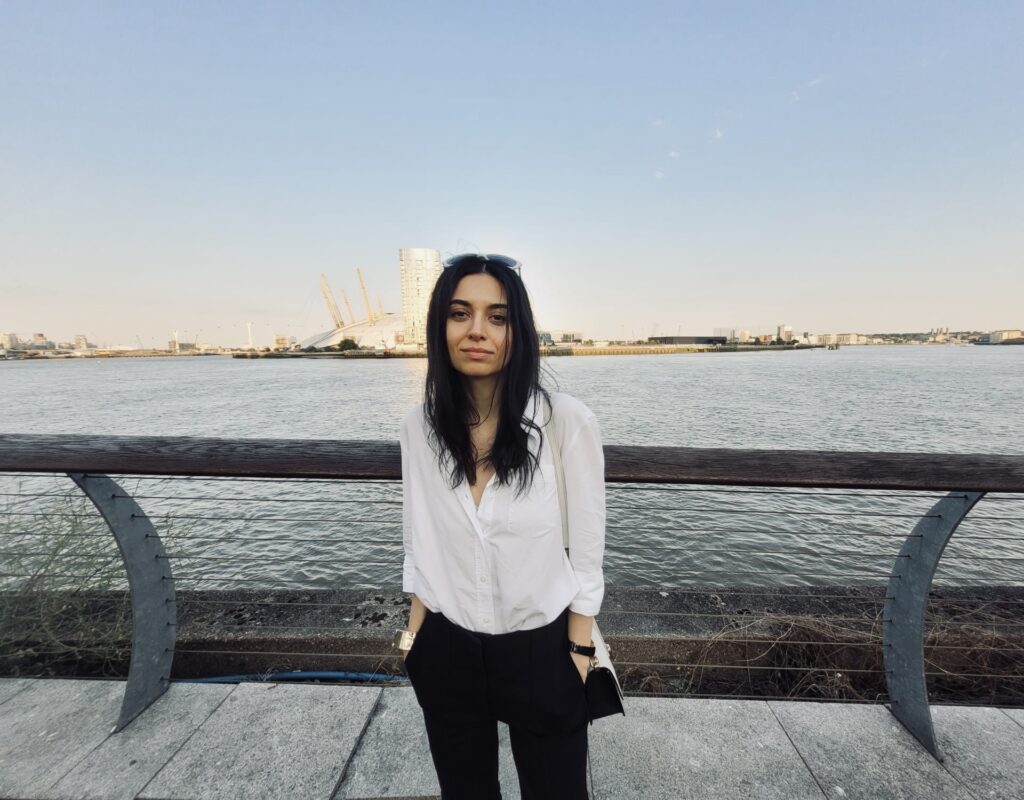
How were the collaborations with the translators of the books you worked on in terms of negotiations and compromises? Do you remember any „fiery” episode?
I think I always managed to get along well with the translators, whether they were well–known people with decades of experience, or whether they were just at the beginning of the journey. I have always respected this profession, that is so little appreciated in Romania. Therefore, I understood why some of them tend to negotiate everything, however insignificant it may seem from the outside. It helps that I know how to have a civilized conversation, even when I was the rookie among the editors, and nowadays, when I „graduated” to senior editors.
Less than two years later, you took over the supervising of some of Corint’s collections, including Classics of Literature, a series you confessed you feel very attached to. What changed in your daily routine after this moment?
It changed a lot – I had to zoom out instead of zooming in like you do in copy editing. My inclination is towards the big picture though, so the new way of working didn't faze me out. I think it was due to the fact that I had already been involved in matters beyond the scope of a copy editor that led to this proposal to take over the coordination of the Classics of Literature imprint, but that doesn't mean the new role didn't come with all sorts of unexpected challenges. I constantly tried to keep a balance between everything that had been built until then and what I wanted to change. I took care of bringing new titles to the portfolio, with everything that comes with it (external and internal copyright, negotiating with translators, often also copy editing, always final readings, permission to print, designing covers and texts of all kinds), and involved myself in the promotion and all related activities. I never thought I would have the privilege of curating this collection, but it was a perfect fit.
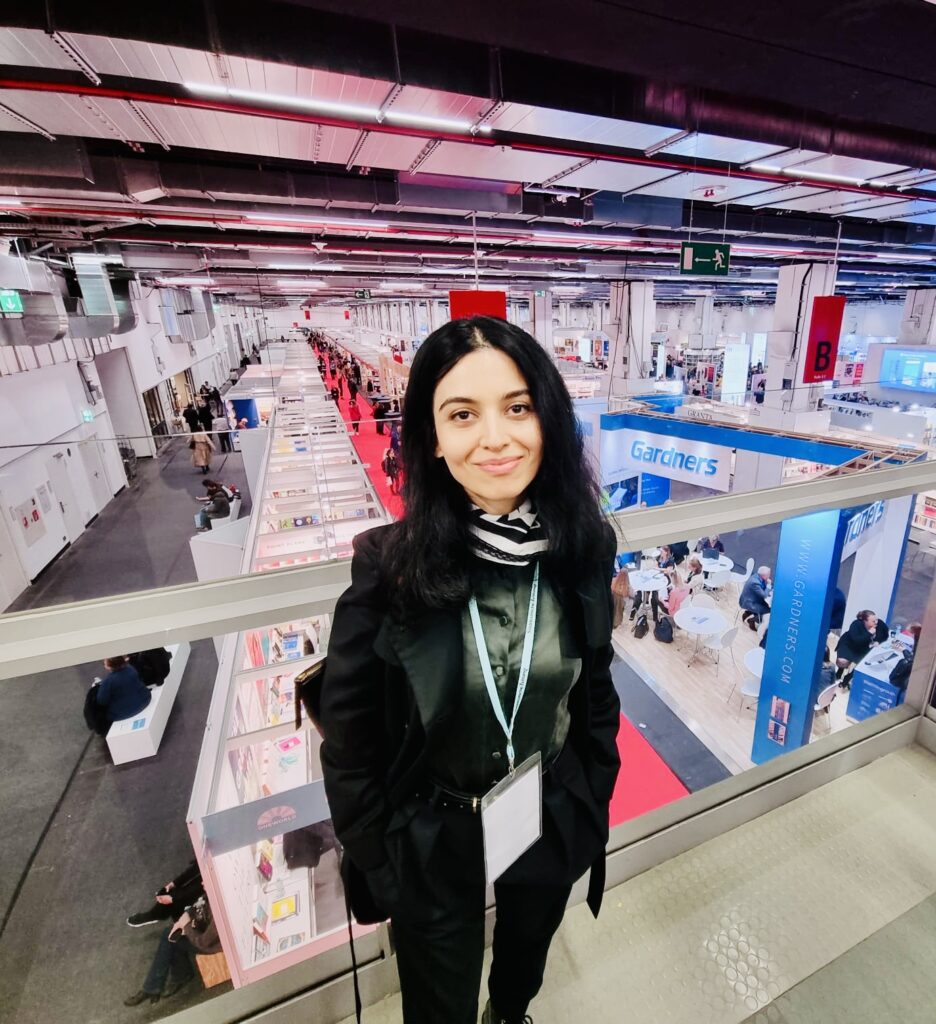
From 2023 you are the Editorial Director at Corint, supervising the publishing house's collections and designing the development lines. What does the job description of an editorial director entail?
I collaborate very closely with my fellow colleagues working on imprints or with collections coordinators, every day we need to discuss various scheduled or unexpected matters, so that I can realistically monitor the editorial activity. I also have a symbiotic relationship with my fellow editors, who work on the texts that will turn into future books. I keep very close contact with the Technical Editing , Graphics, Sales, PR-Marketing and Production departments to make sure that the editorial and printing plan is carried out. Together with our fellow coordinating editors and colleagues from the DTP & Graphics team we set up the layouts of the new collections or of the older ones, in the event of a rebranding. Then, a constant concern is the consolidation of the publishing house's portfolio - again, together with the colleagues responsible for the various subfields of the publishing house. I track the marketability and efficiency of collections in general, but also of specific titles. Another aspect related to my role is strengthening the portfolio of collaborators: authors, translators, prefaces, lecturers, referees, editors etc.
What does your working day look like now? You mentioned in an interview the abyss of excels and the deluge of e-mails and phone calls.
It looks like a Rorschach blot. I am satisfied if at the end of the day I perceive something intelligible from it..
As editorial director, you are in the final forum that makes the decisions regarding the inclusion of new titles in the portfolio. How do you sort through the suggestions that flood the rights acquisition manager's inbox, and what are the criteria by which you choose one title over the others?
We always take into account our profile and our collections, but also the context in which we find ourselves. Not all good manuscripts are good for us to publish. Apart from the opinions of the collection coordinators and the management of the publishing house, the opinion of the Sales and Marketing departments matters a lot, especially in recent years, which have not necessarily been great for the book industry in Romania. It's about a constant balancing act between editorial aspirations and the reality of the industry..
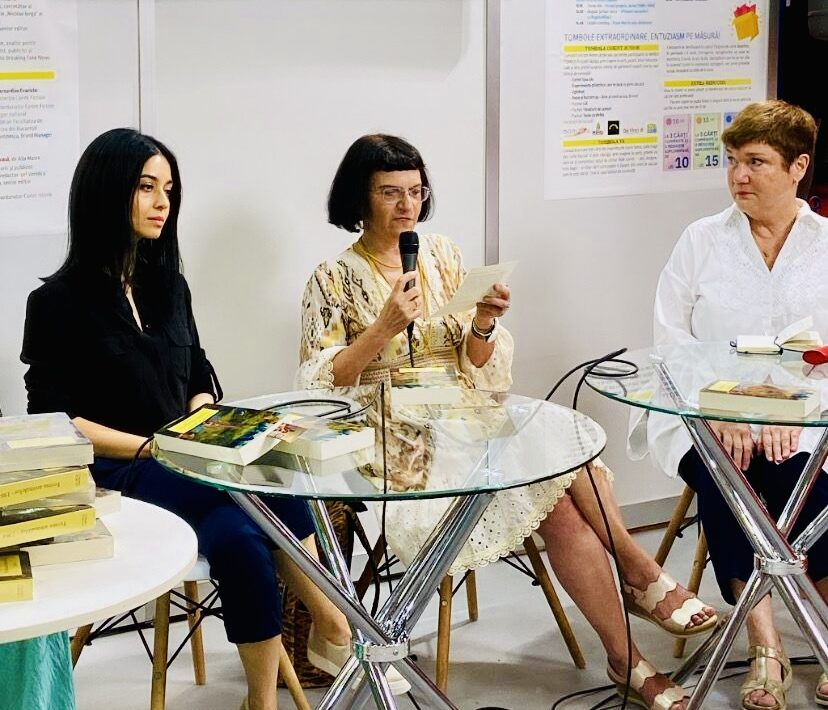
You are, as you said, the bridge between many departments of the publishing house, from creative to those that keep production and finances in check. What are the most frequent interactions with them and what are the strategies used to maintain a fruitful collaboration?
We have known each other - we colleagues - for many years already, and now that my role has evolved, we collaborate just as well. I was talking with them, with colleagues from Editorial, Technical Editorial, Production, Sales, Marketing-PR, etc., ever since I was a beginner editor, from them I learned a lot about the professional role I have now. It also helps that I'm a communicative person, that I'm not arrogant. I'm driven only by the desire for everything to turn out as well as possible, not to prove something about myself. How could we make good decisions, how could we work on covers, interiors, how could we design PR campaigns, how could we stick to budgets, if not by constantly collaborating?
What does a bestseller mean for Corint publishing house? But a longseller?
Frequent bestsellers are in Young Adult collections (tens of thousands of volumes, collected in consecutive editions), surprising but very gratifying bestsellers are those of the type I Love You, My Marie. Barbu Știrbey's Letters to Queen Mary (editor Cătălin Strat) or The Habsburgs. The Ambition to Rule the World (Martyn Rady, Corint History), to list among the recent ones. Longsellers are many of the Classics volumes, which is absolutely natural, especially in the case of a collection with such stability on the market (in this softcover form, the collection has been around for 10 years, but it actually derives from the even older Leda Classic collection, hardcover, highly regarded by readers also in the 2000s).
You have two master's degrees in communication and cultural management and a doctorate in philology. How much has this academic route helped your career so far?
It turned out that my academic route helped me a lot, but the truth is that the academic or professional choices I made were always motivated by what I was interested in learning. Intellectual curiosity alone guided me in everything I studied - in institutions or in my own pursuits. I didn't think for a moment what I was going to do next, I didn't have any plan, I was only concerned with my passion at that moment, but, as it usually happens, the story took shape, and now everything has become part of the story of my life. In addition to the academic endeavours, it was equally helpful to meet some people who shaped me. My later interests were completely influenced by the presence of the painter Gheorghe Simion, who was my counselling teacher at the "Bălașa Doamna" Arts High School in the city where I was born, Târgoviște, where I went to secondary school. After that, it was the intellectual and spiritual influence that Professor Mihai Dinu had on me, who was my supervisor at the bachelor's degree, at one of the master's degrees and at the PhD.
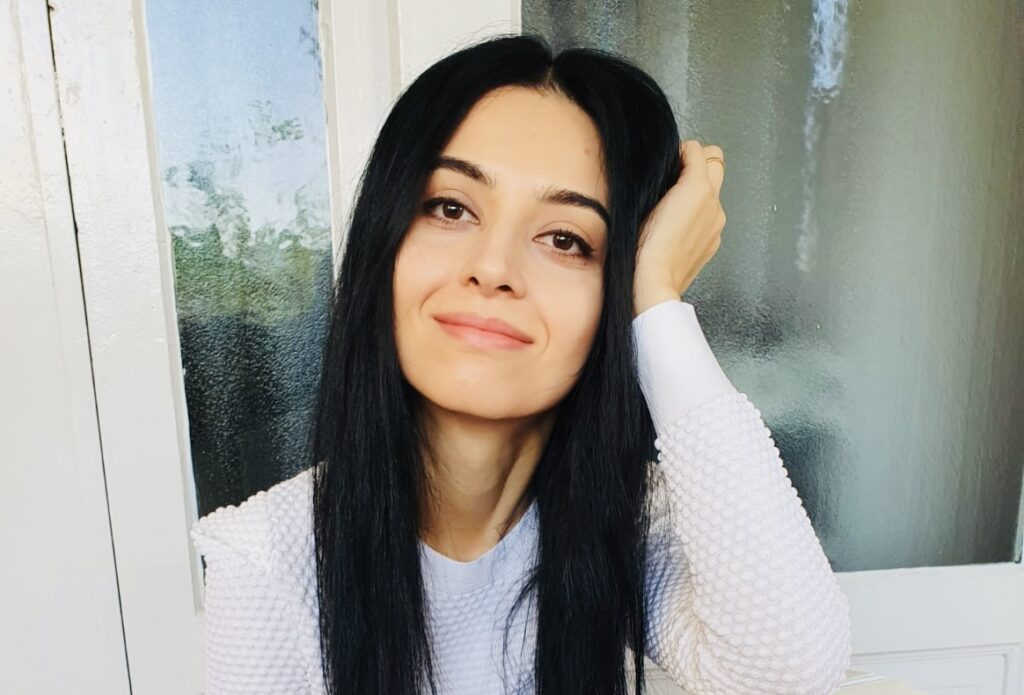
The book industry still seems to be attractive to young people just starting out, you confirmed that in a recent interview. What do you think are the most important skills and acquisitions that someone interested in working in this field should have? In the same interview, you also talked about the editing courses you organized in Corint a few years ago and about the apprenticeship period that those who stood out had gained.
That's right, amazingly, young humanities graduates are still interested in the book industry. However, a passion for reading is far from sufficient for a career in this field. An extremely solid philological foundation is needed, even in the case of copy editors specializing in non-fiction, then, curiosity and willingness to always learn, to improve yourself, a certain cultural scope, but also an anchoring in contemporary culture are needed. The ability to go back and forth in as many foreign languages as possible is very good, since the proportion of translations is still very high in the Romanian industry, and then, as a strictly personal observation, I think it is useful for the copy editor to quickly get used to the thought that for the publishing house he will never read as he read as a lecturer, however capable he may have been. The sooner you understand that you're not reading for pleasure and that the way you read as an copy editor is completely different from what you've been doing before, the better your chances of becoming a better professional and not getting oversaturated, which may lead to rejecting leisure time reading.
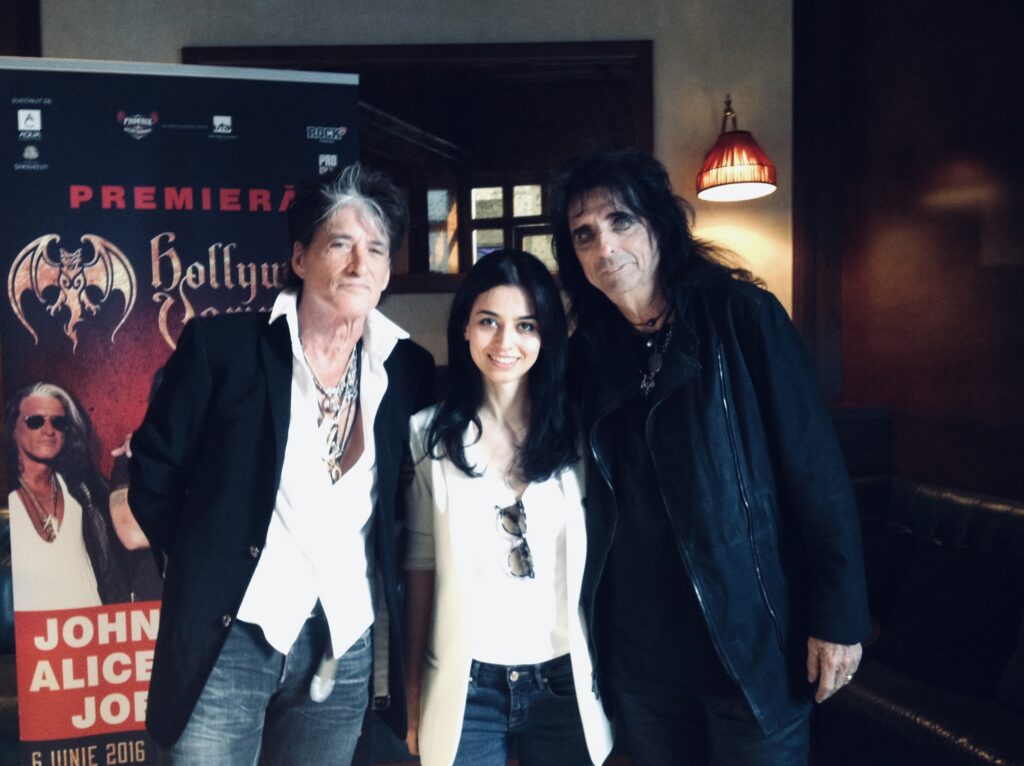
At Rock FM, where you were a news editor until 2017, you were part of the teams that interviewed many of the artists who came to Romania; Beth Hart or Ian Gillan are just a few of them. Do you remember an episode that sticks out to you?
I'm the type of person who constantly finds role models to admire, I need this exercise of delighting in the achievements of others. I have had the great fortune to meet some of these creators. For example, in 2016, I was part of the team that interviewed the musicians of Hollywood Vampires. Several journalists had come: some, interested in the musical side of the event, others, more to see Johnny Depp, guitarist in the band. I actually remember a few scenes very clearly. We were three teams, from different trusts, who were going to enjoy this rare opportunity to interview the respective artists. We had the equipment set up and were waiting for them to arrive. Some of us had prepared with thorough research and professional questions, others, with relatives who wanted to meet Johnny and with looks ready to impress him—sunglasses worn indoors, hats, corsets, Tim Burton like make-up, who, by the way, accompanied the actor-musician on tour. As we stood there ready for the attack, the long-awaited Johnny Depp appeared ghostly at the head of the stairs. He saw the pooch waiting for him, the man must have been scared by such visual competition, so he turned on his heel and left, only to reappear when he had to go on stage. Journalists from the other two media trusts left because, I guess, they didn't know how to converse with the lowly Alice Cooper and Joe Perry, so, accidently, they helped create one of the fondest memories for us, at Rock FM. These great musicians were not offended by this incredibly uncivilized gesture, they stayed to chat with us well past the scheduled time, told us a lot of interesting things and confirmed that, sometimes, it's good to meet your idols.
[The photos are part of Iulia-Cristiana Stan’s archive.] [Translated into English by Edward Vasile.]

